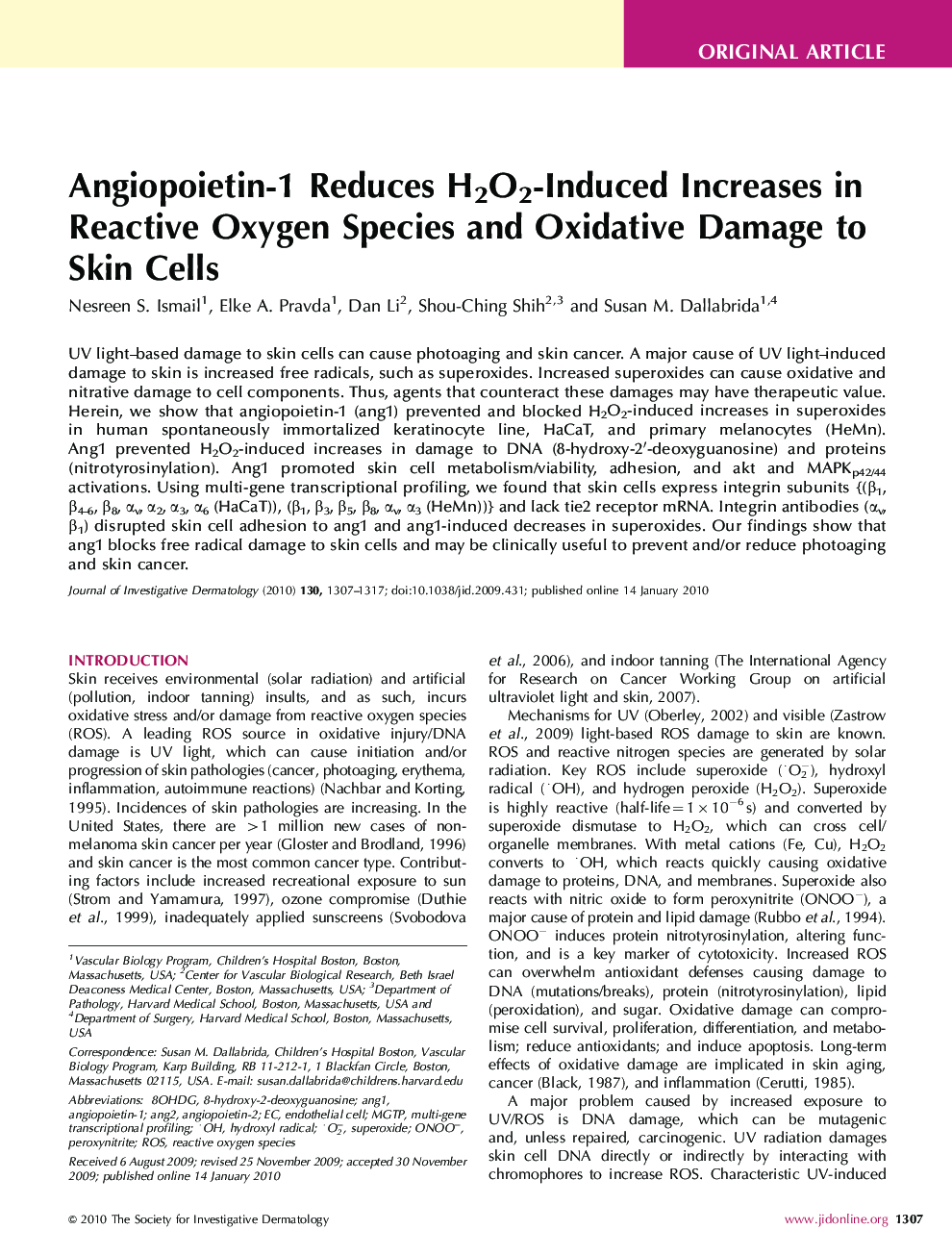| کد مقاله | کد نشریه | سال انتشار | مقاله انگلیسی | نسخه تمام متن |
|---|---|---|---|---|
| 3217094 | 1203592 | 2010 | 11 صفحه PDF | دانلود رایگان |

UV light–based damage to skin cells can cause photoaging and skin cancer. A major cause of UV light–induced damage to skin is increased free radicals, such as superoxides. Increased superoxides can cause oxidative and nitrative damage to cell components. Thus, agents that counteract these damages may have therapeutic value. Herein, we show that angiopoietin-1 (ang1) prevented and blocked H2O2-induced increases in superoxides in human spontaneously immortalized keratinocyte line, HaCaT, and primary melanocytes (HeMn). Ang1 prevented H2O2-induced increases in damage to DNA (8-hydroxy-2′-deoxyguanosine) and proteins (nitrotyrosinylation). Ang1 promoted skin cell metabolism/viability, adhesion, and akt and MAPKp42/44 activations. Using multi-gene transcriptional profiling, we found that skin cells express integrin subunits {(β1, β4–6, β8, αv, α2, α3, α6 (HaCaT)), (β1, β3, β5, β8, αv, α3 (HeMn))} and lack tie2 receptor mRNA. Integrin antibodies (αv, β1) disrupted skin cell adhesion to ang1 and ang1-induced decreases in superoxides. Our findings show that ang1 blocks free radical damage to skin cells and may be clinically useful to prevent and/or reduce photoaging and skin cancer.
Journal: Journal of Investigative Dermatology - Volume 130, Issue 5, May 2010, Pages 1307–1317